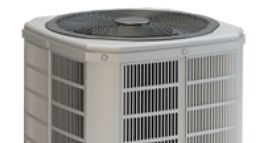Geothermal heat pumps are another efficient, eco-friendly tool for homeowners. We’ve talked about considerations for builders before, but what do agents need to know? From maintenance needs to their value on the market, here’s your primer on geothermal.
The Basics
Geothermal heat pumps or GHPs harness energy from below the earth’s surface. Despite fluctuating air temperature, the earth’s internal temperature remains constant. GHPs leverage this constant temperature as the exchange medium for cooling and heating. They do this by transferring heat through lengthy loops of liquid-filled pipe buried beneath the ground.
Once installed, GHPs use only a small amount of electricity to circulate the water through the system. Because they use no oil or gas and very little water, GHPs are able to save homeowners thousands of dollars in heating costs each year.
The Economics
Although a residential GHP system comes with considerable purchase and installation costs, they deliver more per-unit-consumed energy than conventional systems. Some GHPs are also equipped with heater devices that can heat household water. During the summer, heat taken from the house can be used to heat up water at no cost. During the winter, water heating costs are typically reduced by 50 percent.
According to the U.S. Department of Energy, homeowners are usually able to recoup their investments in two to ten years, depending on soil conditions, local climate, potential financing incentives and the type of system they choose. That said, when included in a mortgage, a GHP can result in a positive cash flow from the start. For instance, if the added $3,000 cost of a GHP increases a mortgage payment by $30 per month, the total energy cost savings would easily exceed that added mortgage expense over the span of a year.
Local, state and federal governments also offer special incentives and financing options to help homeowners and businesses retrofit their existing systems. Some banks or mortgage companies also offer energy-efficient mortgage loans for energy-saving property improvements.
What Your Clients Should Know
When it comes to explaining the value of GHPs to their clients, agents need to know some key basics about geothermal heating, including:
- Can cut home cooling and heating bills by 30 to 70 percent
- Eliminates loud outdoor compressors and fans
- Reliable year-round temperature control
- Reduces greenhouse gas emissions by the equivalent of removing two cars from the road
- Federal tax credits available for GHPs that meet Energy Star efficiency standards
- Installation costs can range from about $3,500 to $13,000
- Low cost to operate
- Lower maintenance costs due to better reliability
It’s not hard to see why an existing GHP unit would be attractive to buyers. GHPs are nearly 50 percent more efficient than gas furnaces and twice as efficient as a high-quality air conditioner. If a property already has a GHP system, it represents a major selling point. At the same time, because some home buyers come to a property with a mind to renovate, agents can sometimes mention the possibility of an energy efficient heating system upgrade to spark interest.
With all that said, some buyers might be scared away from homes with geothermal systems, because they aren’t familiar with the technology and fear expensive repair costs. Still others may view geothermal as a normal HVAC system without understanding the significance of the energy savings. In the end, it’s up to an agent to educate buyers on the advantages of GHPs before they consider making an offer.
Learn more about how a Home Warranty can save homeowners from unpleasant financial surprises and add value to your business.








